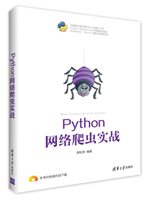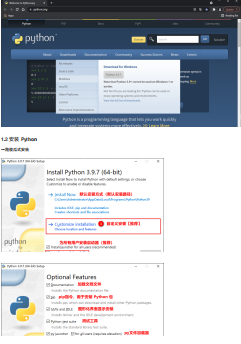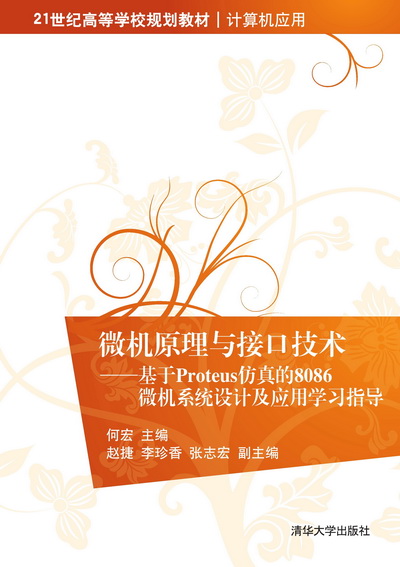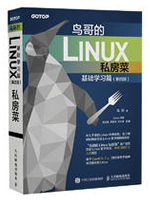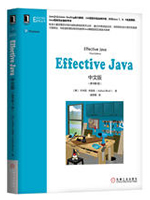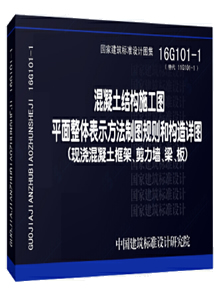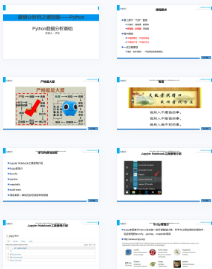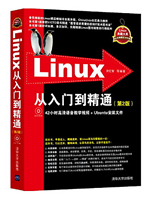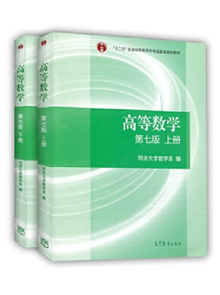给网友朋友们带来一篇Swift相关的编程文章,网友靳寻雪根据主题投稿了本篇教程内容,涉及到Swift、泛型、Swift泛型相关内容,已被294网友关注,相关难点技巧可以阅读下方的电子资料。
Swift泛型
泛型代码可以让你写出根据自我需求定义、适用于任何类型的,灵活且可重用的函数和类型。它可以让你避免重复的代码,用一种清晰和抽象的方式来表达代码的意图。
泛型是 Swift 强大特征中的其中一个,许多 Swift 标准库是通过泛型代码构建出来的。事实上,泛型的使用贯穿了整本语言手册,只是你没有发现而已。例如,Swift 的数组和字典类型都是泛型集。你可以创建一个Int数组,也可创建一个String数组,或者甚至于可以是任何其他 Swift 的类型数据数组。同样的,你也可以创建存储任何指定类型的字典(dictionary),而且这些类型可以是没有限制的。
泛型所解决的问题
这里是一个标准的,非泛型函数swapTwoInts,用来交换两个Int值:
func swapTwoInts(inout a: Int, inout b: Int) let temporaryA = a a = b b = temporaryA }
这个函数使用写入读出(in-out)参数来交换a和b的值,请参考写入读出参数。
swapTwoInts函数可以交换b的原始值到a,也可以交换a的原始值到b,你可以调用这个函数交换两个Int变量值:
var someInt = 3
var anotherInt = 107
swapTwoInts(&someInt, &anotherInt)
println("someInt is now \(someInt), and anotherInt is now \(anotherInt)")
// 输出 "someInt is now 107, and anotherInt is now 3"
swapTwoInts函数是非常有用的,但是它只能交换Int值,如果你想要交换两个String或者Double,就不得不写更多的函数,如 swapTwoStrings和swapTwoDoublesfunctions,如同如下所示:
func swapTwoStrings(inout a: String, inout b: String) {
let temporaryA = a
a = b
b = temporaryA
}
func swapTwoDoubles(inout a: Double, inout b: Double) {
let temporaryA = a
a = b
b = temporaryA
}
你可能注意到 swapTwoInts、 swapTwoStrings和swapTwoDoubles函数功能都是相同的,唯一不同之处就在于传入的变量类型不同,分别是Int、String和Double。
但实际应用中通常需要一个用处更强大并且尽可能的考虑到更多的灵活性单个函数,可以用来交换两个任何类型值,很幸运的是,泛型代码帮你解决了这种问题。(一个这种泛型函数后面已经定义好了。)
注意: 在所有三个函数中,a和b的类型是一样的。如果a和b不是相同的类型,那它们俩就不能互换值。Swift 是类型安全的语言,所以它不允许一个String类型的变量和一个Double类型的变量互相交换值。如果一定要做,Swift 将报编译错误。
泛型函数:类型参数
泛型函数可以访问任何数据类型,如:'Int' 或 'String'.
func exchange<T>(inout a: T, inout b: T) {
let temp = a
a = b
b = temp
}
var numb1 = 100 var numb2 = 200
println("Before Swapping Int values are: \(numb1) and \(numb2)") exchange(&numb1, &numb2) println("After Swapping Int values are: \(numb1) and \(numb2)")
var str1 = "Generics" var str2 = "Functions"
println("Before Swapping String values are: \(str1) and \(str2)") exchange(&str1, &str2) println("After Swapping String values are: \(str1) and \(str2)")
Before Swapping Int values are: 100 and 200 After Swapping Int values are: 200 and 100 Before Swapping String values are: Generics and Functions After Swapping String values are: Functions and Generics
函数 exchange()用于交换其在上述方案中描述和<T>被用作类型参数值。这是第一次,函数 exchange()被调用返回Int值,第二次调用函数 exchange()将返回String值。多参数类型可包括用逗号分隔在尖括号内。
类型参数被命名为用户定义来了解拥有类型参数的目的。 Swift 提供<T>作为泛型类型参数的名字。 但是型像数组和字典参数也可以命名为键,值,以确定它们输入属于“字典”。
泛型类型
struct TOS<T> {
var items = [T]()
mutating func push(item: T) {
items.append(item)
}
mutating func pop() -> T {
return items.removeLast()
}
}
var tos = TOS<String>() tos.push("Swift") println(tos.items)
tos.push("Generics") println(tos.items)
tos.push("Type Parameters") println(tos.items)
tos.push("Naming Type Parameters") println(tos.items)
let deletetos = tos.pop()
[Swift] [Swift, Generics] [Swift, Generics, Type Parameters] [Swift, Generics, Type Parameters, Naming Type Parameters]
扩展泛型类型
扩展堆栈属性要知道该项目的顶部包含在“extension” 关键字。
struct TOS<T> {
var items = [T]()
mutating func push(item: T) {
items.append(item)
}
mutating func pop() -> T { return items.removeLast() } }
var tos = TOS<String>() tos.push("Swift") println(tos.items)
tos.push("Generics") println(tos.items)
tos.push("Type Parameters") println(tos.items)
tos.push("Naming Type Parameters") println(tos.items)
extension TOS { var first: T? { return items.isEmpty ? nil : items[items.count - 1] } }
if let first = tos.first { println("The top item on the stack is \(first).") }
[Swift] [Swift, Generics] [Swift, Generics, Type Parameters] [Swift, Generics, Type Parameters, Naming Type Parameters]
在堆栈顶部的项目命名类型参数。
类型约束
Swift 语言允许“类型约束”指定类型参数是否从一个特定的类继承,或者确保协议一致性标准。
func exchange<T>(inout a: T, inout b: T) {
let temp = a
a = b
b = temp
}
var numb1 = 100 var numb2 = 200
println("Before Swapping Int values are: \(numb1) and \(numb2)") exchange(&numb1, &numb2) println("After Swapping Int values are: \(numb1) and \(numb2)")
var str1 = "Generics" var str2 = "Functions"
println("Before Swapping String values are: \(str1) and \(str2)") exchange(&str1, &str2) println("After Swapping String values are: \(str1) and \(str2)")
Before Swapping Int values are: 100 and 200 After Swapping Int values are: 200 and 100 Before Swapping String values are: Generics and Functions After Swapping String values are: Functions and Generics
关联类型
Swift 允许相关类型,并可由关键字“typealias”协议定义内部声明。
protocol Container {
typealias ItemType
mutating func append(item: ItemType)
var count: Int { get }
subscript(i: Int) -> ItemType { get }
}
struct TOS<T>: Container { // original Stack<T> implementation var items = [T]() mutating func push(item: T) { items.append(item) } mutating func pop() -> T { return items.removeLast() }
// conformance to the Container protocol mutating func append(item: T) { self.push(item) } var count: Int { return items.count }
subscript(i: Int) -> T { return items[i] } }
var tos = TOS<String>() tos.push("Swift") println(tos.items)
tos.push("Generics") println(tos.items)
tos.push("Type Parameters") println(tos.items)
tos.push("Naming Type Parameters") println(tos.items)
[Swift] [Swift, Generics] [Swift, Generics, Type Parameters] [Swift, Generics, Type Parameters, Naming Type Parameters]
Where 子句
类型约束使用户能够定义与泛型函数或类型相关联的类型的参数要求。用于定义相关类型的 'where' 子句声明为类型参数列表的一部分要求。 “where”关键字类型参数后面类型和相关类型之间的相关类型的限制,平等关系的列表后放置。
protocol Container {
typealias ItemType
mutating func append(item: ItemType)
var count: Int { get }
subscript(i: Int) -> ItemType { get }
}
struct Stack<T>: Container { // original Stack<T> implementation var items = [T]() mutating func push(item: T) { items.append(item) }
mutating func pop() -> T { return items.removeLast() }
// conformance to the Container protocol mutating func append(item: T) { self.push(item) } var count: Int { return items.count }
subscript(i: Int) -> T { return items[i] } }
func allItemsMatch< C1: Container, C2: Container where C1.ItemType == C2.ItemType, C1.ItemType: Equatable> (someContainer: C1, anotherContainer: C2) -> Bool { // check that both containers contain the same number of items if someContainer.count != anotherContainer.count { return false }
// check each pair of items to see if they are equivalent for i in 0..<someContainer.count { if someContainer[i] != anotherContainer[i] { return false } } // all items match, so return true return true }
var tos = Stack<String>() tos.push("Swift") println(tos.items)
tos.push("Generics") println(tos.items)
tos.push("Where Clause") println(tos.items)
var eos = ["Swift", "Generics", "Where Clause"] println(eos)
[Swift] [Swift, Generics] [Swift, Generics, Where Clause] [Swift, Generics, Where Clause]




